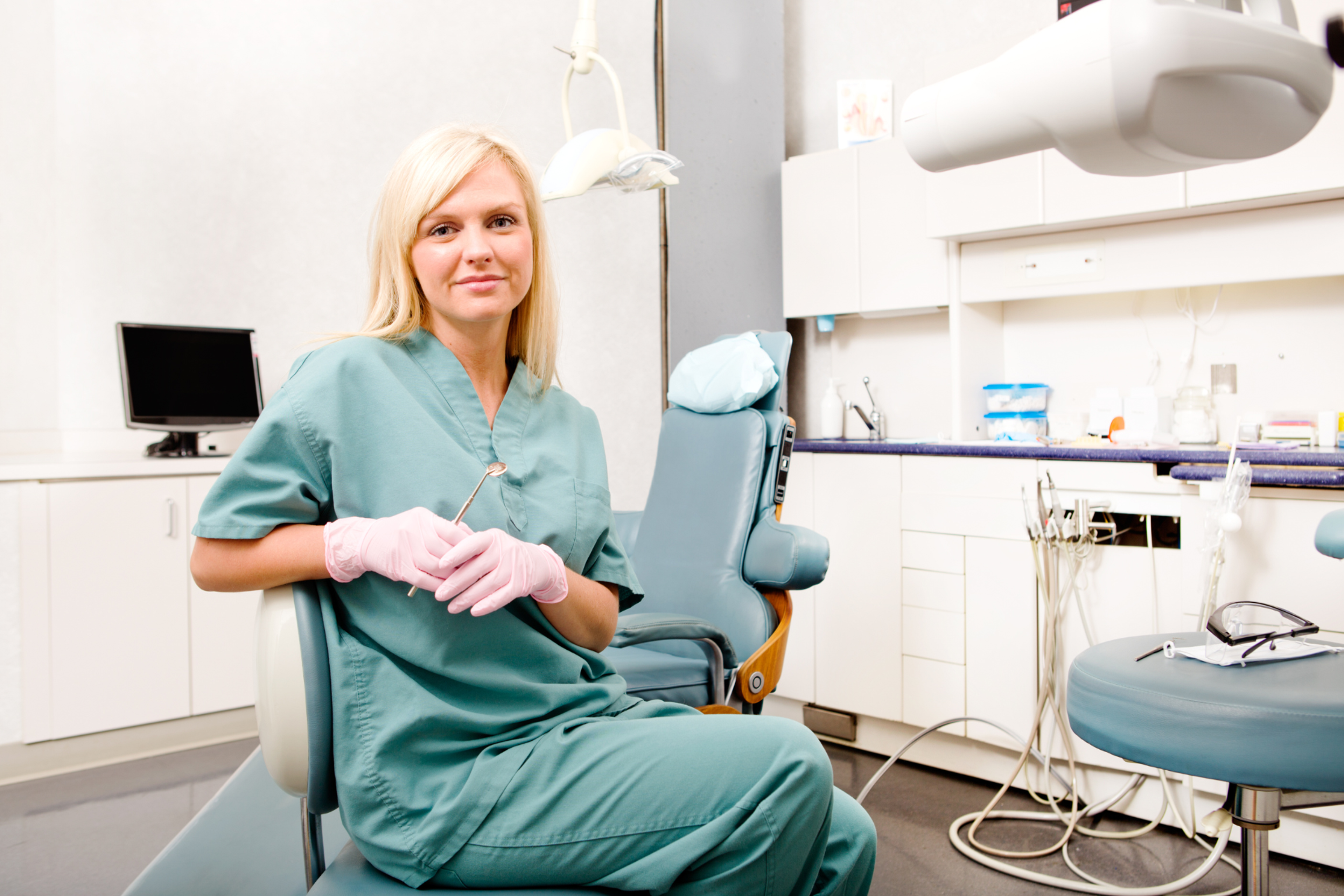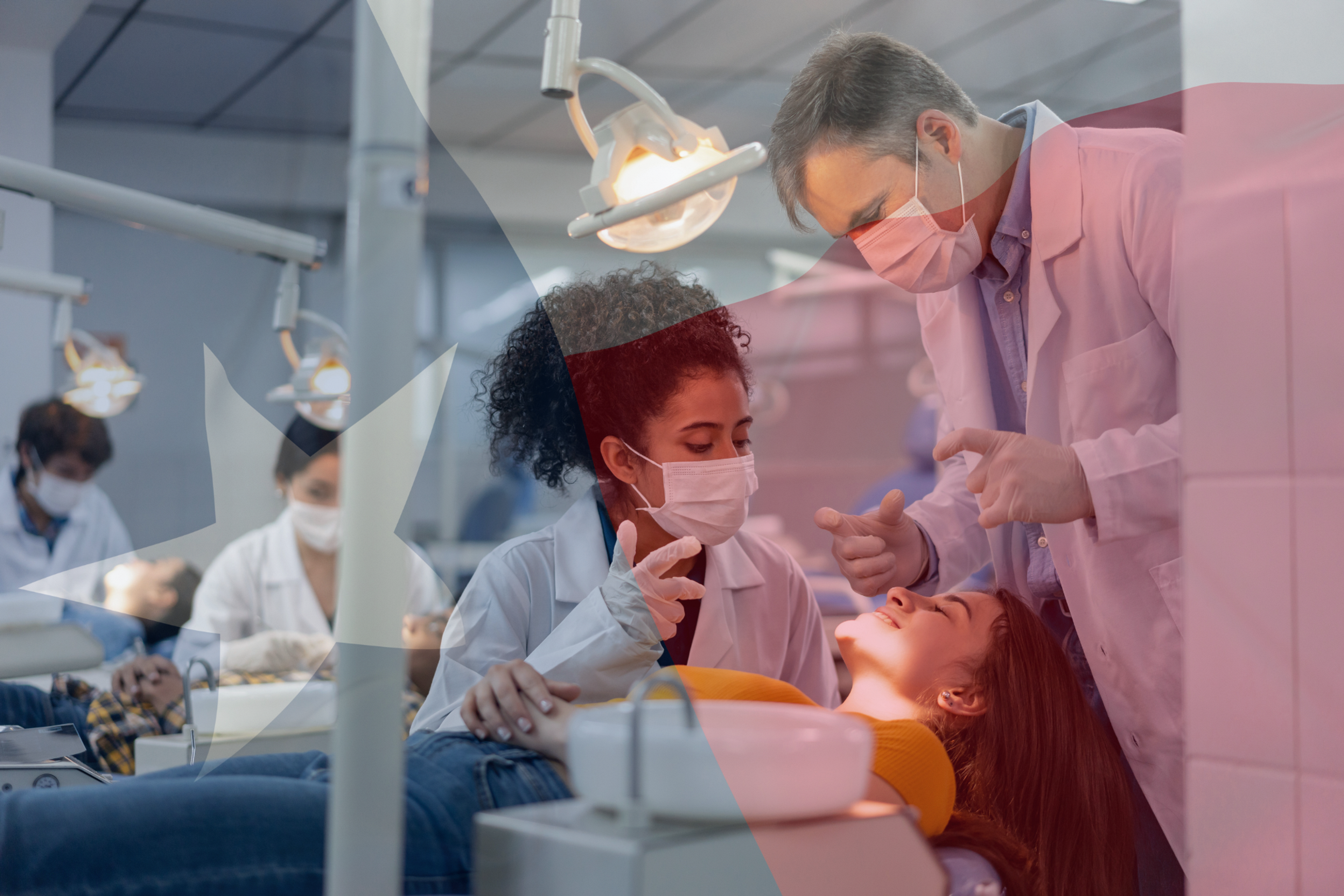List of Dental Schools in Arizona & How to Get In
Are you an aspiring dentist looking for the best dental schools in Arizona? Look no further! Our complete guide explores the top dental schools in the state, admission requirements, and what to expect from each program.
Posted July 3, 2025

Table of Contents
You’ve got a few strong schools to choose from in Arizona. Whether you’re aiming to study in a major city or you want hands-on experience in community-based health centers, this state offers solid paths into the dental profession.
This guide breaks down Arizona's top dental schools, what they offer, and what it takes to get in. We’ll also share tips on how to stand out as an applicant, even if your science GPA isn’t perfect.
Top Dental Schools in Arizona (2025)
Arizona may not have as many dental schools as other states, but the options here are strong. Both programs offer a Doctor of Dental Medicine (DMD) degree and focus on creating well-qualified general dentists who can serve patients across a range of settings.
Here's what you should know about each school and how to give yourself the best shot at getting in.
ATSU Arizona School of Dentistry & Oral Health (ASDOH)
- Acceptance Rate: 13%
- Average DAT Score: 20
- Average GPA: 3.5
- Program Length: 4 years
- Degrees Offered: DMD
- In-State Tuition: $83,000
- Notable Clinics:
- Dental Care West
- Center for Advanced Oral Health
- Example Courses:
- Oral Pathology
- Prosthodontics
- Community-Based Dental Education
- Specialty Tracks:
- Public Health Certificate
- Advanced Standing for International Dentists
ATSU’s Arizona School of Dentistry & Oral Health is known for its strong focus on community-based care and whole-person health. The program blends hands-on clinical training with public health education, giving students a strong foundation to work in both private practice and underserved communities. With small class sizes and early exposure to patient care, students graduate ready to serve diverse populations across Arizona and beyond.
How to Get In
If you’re thinking about applying to ASDOH, here’s one thing to know right away: community service is everything. This school truly values students who care about giving back. It's not just a bonus -- it’s part of their mission. The most competitive applicants often come in with at least 400 hours of volunteering, including both dental and non-dental service. Many students have done dental mission trips, and the admissions team loves that kind of experience.
Academically, having a solid DAT score (around 20AA) and a science GPA near or above 3.0 is a good starting point, but what sets applicants apart at ASDOH is their heart. If you’ve shadowed dentists, worked as a dental assistant, or done research, that’s a bonus. But make sure your application tells a clear story: you care about community-based health, and you’re ready to serve. That’s what ASDOH is looking for.
College of Dental Medicine-Arizona (CDMA) at Midwestern University
- Acceptance Rate: 6.3%
- Application Deadline: January 1
- Average DAT Score: 20.2
- Average GPA: 3.5
- Program Length: 4 years
- Degrees Offered: DMD
- Notable Clinics: Midwestern University Dental Institute
- Example Courses:
- General Dentistry
- Oral Surgery
- Pediatric Dentistry
- Specialty Tracks:
- Advanced Clinical Training
- Community Service Programs
The CDMA offers a modern curriculum with state-of-the-art facilities, including virtual reality training to simulate dental procedures. The program encourages interdisciplinary learning and provides opportunities for certifications alongside the DMD degree. Students benefit from hands-on experiences in the Midwestern University College of Dental Medicine-Arizona, serving diverse communities.
How to Get In
When it comes to getting into CDMA, your overall GPA really matters. They’re looking for students who have shown they can handle a full academic load. A GPA around 3.5, a DAT score above 20, above 20 TS, and an above PAT will keep you in a strong spot. But academics aren’t the only thing they care about.
Applicants who stand out usually bring a well-rounded mix of experience -- things like shadowing dentists, volunteering, and being active in their communities. It's ideal to have over 1,000 hours of shadowing and 400+ hours of volunteering.
If you can show you’ve been serious about exploring the field and giving back, you’re going to make a good impression. CDMA wants students who are not just strong academically, but also ready to serve and lead in real-world dental settings.
Read: How Many Shadowing Hours for Dental School? The Ultimate Guide (2025)
Bonus: Dental Hygiene & Pre-Dental Programs in Arizona
If you're not quite ready for dental school but want to enter the field, Arizona has high-quality dental hygiene and pre-dental programs that can prepare you for a dental career.
Northern Arizona University – Dental Hygiene Program
- Acceptance Rate: 32%
- Program Length: 2 years
- Degrees Offered: BS in Dental Hygiene
- Tuition: ~$11,000 (in-state undergraduate)
- Notable Clinics: NAU Dental Hygiene Clinic
- Example Courses:
- Oral Radiology
- Community Dental Health
- Periodontics
- Specialty Tracks: RDH to BSDH Completion Program
The NAU Dental Hygiene program is a challenging two-year course that includes four 16-week semesters, a 6-week summer session, and a 2-week summer externship. Classes are held only at NAU’s Flagstaff Mountain Campus, and applicants must complete around two years of prerequisite coursework before applying.
Pima Community College – Dental Hygiene Program
- Program Length: 2 years (AAS)
- Degrees Offered: Associate of Applied Science in Dental Hygiene
- Tuition: ~$2,250/semester (in-state)
- Notable Clinics: On-campus dental hygiene clinic
- Example Courses:
- Dental Materials
- Pain Control
- Pharmacology
- Specialty Tracks: N/A
Located in Tucson, the Pima Community College - Dental Hygiene Program is one of the most affordable dental hygiene programs in the state. Graduates are eligible for licensure as Registered Dental Hygienists (RDHs) in Arizona and beyond.
Arizona State University – Pre-Dental Program (Advising Track)
- Program Length: 4 years
- Degrees Offered: BS in Biological Sciences (Pre-Dental Concentration)
- Tuition: ~$12,000/year (in-state undergrad)
- Notable Clinics: N/A (advising & research only)
- Example Courses:
- General Chemistry
- Human Anatomy
- Cell Biology
- Specialty Tracks:
- Pre-Dental Advising
- Research Opportunities
ASU offers a pre-dental advising track through its School of Life Sciences. Students complete prerequisites for dental school while receiving help with applications, DAT prep, and clinical volunteer opportunities.
Arizona Dental School Requirements
While specific requirements vary slightly between schools, here are the core admissions criteria:
Academic Prerequisites
- Bachelor’s degree (required or in progress)
- Coursework in:
- Biology (with lab)
- General Chemistry (with lab)
- Organic Chemistry (with lab)
- Physics (with lab)
- English Composition
- Recommended: Anatomy, Physiology, Microbiology, Biochemistry
GPA & Academic Performance
- Competitive GPA range: 3.3 – 3.7+
- Science GPA: Equally (or more) important than cumulative GPA
Dental Admission Test (DAT)
- DAT scores are required for both schools
- Competitive DAT range: 20 – 22 AA (Academic Average)
- Strong scores in Perceptual Ability, Sciences, and Reading Comprehension are valued
Letters of Recommendation
- Typically 2–3 letters:
- One from a science professor
- One from a dentist (shadowing experience)
- Optional: Committee letter
Shadowing Hours
- 1000+ hours recommended
- Must include general dentistry (some schools value a variety of specialties)
Other Requirements
- Personal statement (via AADSAS)
- Interview (by invitation)
- Demonstrated community service, leadership, or public health interest (especially important for ASDOH)
Tips to Get Into a Dental School in Arizona
1. Apply Early via AADSAS
One of the most important steps in applying to dental schools in Arizona is to apply early through AADSAS, the centralized application system used by both ASDOH and Midwestern University. The application cycle typically opens in May, and submitting your materials as early as possible can significantly increase your chances of getting an interview.
Since many dental schools, including those in Arizona, use rolling admissions, seats begin filling up early in the cycle. Applying early demonstrates enthusiasm, preparedness, and gives you the advantage of being reviewed before the applicant pool becomes more competitive.
2. Prioritize Clinical & Service Experience
Another key to standing out in the admissions process is to prioritize clinical and service experience. Both ASDOH and Midwestern University place strong emphasis on community outreach and patient-centered care, so it’s essential to demonstrate a track record of involvement in these areas.
Whether it’s volunteering at free dental clinics, engaging in public health initiatives, or shadowing dentists in underserved communities, these experiences show that you not only understand the realities of dental care but are also committed to serving others -- an attribute both schools deeply value.
3. Craft a Strong Personal Statement
A well-crafted personal statement can make a lasting impression on admissions committees. This is your opportunity to share a unique, personal journey that led you to pursue dentistry. Go beyond generic motivations and focus on specific experiences that shaped your interest in the field.
Be sure to highlight your passion, resilience, and alignment with the school’s mission, especially if you’re applying to programs like ASDOH that prioritize community health, leadership, and service.
4. Prepare for the Interview
Once you’re invited to interview, it’s crucial to prepare thoroughly, as both ASDOH and Midwestern University Arizona conduct MMI-style or panel interviews. These interviews are designed to assess not only your academic readiness but also your ethical reasoning, communication skills, and commitment to service.
Be ready to discuss your experience with teamwork, your understanding of the ethical challenges in healthcare, and your motivation for choosing dentistry. Schools want to see that you can think critically under pressure and that you genuinely align with their mission of compassionate, community-focused care.
Final Thought
Getting into dental school in Arizona isn’t easy, but it’s possible with the right focus. Schools want future dental students who are smart, committed, and ready for the challenge. Keep your overall and science GPA strong, aim for solid DAT scores, and be thoughtful in your personal statement.
A science grade point average of 2.75 on a four-point scale (3.0 minimum recommended) is the baseline -- above that, you're in a better position. Show schools that you’re ready to become a well-qualified general dentist who can improve oral health in your community. Start early, stay organized, and give it your best shot!
Targeting a dental school in Arizona takes strategy, focus, and the right support. Top dental school coaches help applicants strengthen DAT scores, craft standout personal statements, and navigate the admissions process with confidence. Browse dental school admissions coaches here.
Read these next:
- What Do You Learn in Dental School?
- How to Become a Dentist: Application, Degree Programs, FAQs
- DMD vs. DDS: What's the Difference and Which is Better?
- The Complete Guide to the Dental School Application
- The Top 25 Dental Schools – and How to Get In
FAQs
How many dental schools are in Arizona?
- There are two dental schools: A.T. Still University (ASDOH) and Midwestern University (CDMA). Both offer a Doctor of Dental Medicine (DMD) degree.
What GPA do I need to get into dental school in Arizona?
- You’ll need at least a science grade point average of 2.75, but a 3.0 minimum is generally recommended. Most accepted students have higher GPAs.
Do I need a degree before applying?
- Yes. You’ll need a baccalaureate degree before you can enroll in either program.
Do Arizona dental schools focus on public service?
- Yes. Both schools offer training through community-based health centers where dental students help serve underserved communities.
How long is dental school in Arizona?
- Each program lasts four years and prepares students to enter dental practice as well-qualified general dentists.
What else helps in admissions?
- A strong academic course load, good DAT scores, shadowing experience, and a passion to improve oral health can boost your application.












